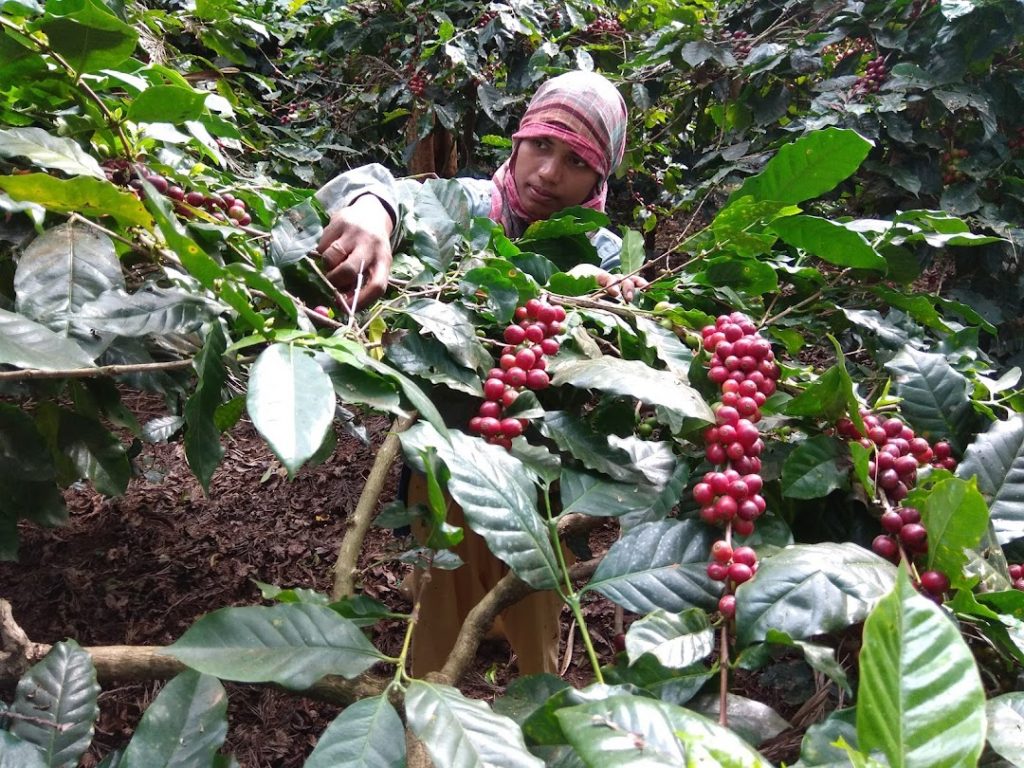Koraput: The District Coffee Trust Board has made a plan to expand coffee farming in Koraput through self-help groups (SHGs). A decision to this effect was taken at the 15th meeting of the Board here Sunday.
Next year, it has set a target to go in for coffee farming in 1,000 hectares to produce 150 metric tonne of coffee. The meeting was presided over by Collector M Abdaal Akhtar.
ADM Rajendra Majhi, PD Hemkant Sai, deputy director of coffee development board Arun Kumar Das, PA of Koraput ITDA Karu Soren, officials of horticulture and the manager of Tribal Development Co-operative Corporation of Odisha Ltd (TDCCOL) underscored the need for granting coffee farming an industry status.
Notably, TDCCOL with technical support from the Regional Coffee Board is making a market intervention of the produce.
As Koraput’s cool climate makes it ideal for coffee growing, the officials laid stress on taking various measures to promote it in big way particularly at Padua, Chatua, Ankadoli, Lamtaput, Dasmathpur, Koraput, Laxmipur, Semiliguda, Potangi and Nandapur.
The Collector said that SHGs should be roped in into the coffee farming. The Collector said that 600 farmers in the district are already into the coffee farming while more tribal farmers will be involved in the cultivation.
These days, more farmers are taking interest in coffee cultivation in several other pockets of the district. Integrated Tribal Development Agency has been receiving a steady stream of requests from tribal communities to help convert wasteland and common land into coffee plantations.
The trend shows a growing interest among tribal communities to diversify their income through this cash crop. The Collector directed the TDCCOL to facilitate the marketing linkage for the coffee produced in the district.
In 2021-2022, coffee will be grown on 1,000 hectares of government and private land. The officials said that Van Suraksha Samitis should be asked to identify suitable jungles for coffee farming.
As a result, women associated with SHGs will be self-reliant with coffee farming along with forest protection, the Collector added. Some of the self-help groups (SHGs) are already involved in coffee growing in some areas.
The larger plantation area will help create livelihoods for more villagers and this crop will bring about a remarkable change in the lives of the tribal people who have primarily practised shifting cultivation for generations.
In 1930, the erstwhile royals of Jeypore had started coffee plantation on an experimental basis in Bichalkota village. Later, the coffee plantation was adopted by the Directorate of Soil Conservation and Watershed Development to check siltation at the Machhkund hydroelectricity reservoir in 1958.
Using the forest canopy, the directorate started expanding the plantation area in a graded manner. The expansion, however, did not pick up pace because of fund constraints and policy bottlenecks.
In 2016-17, the Koraput district administration founded the Coffee Development Trust to create a single platform to remove bottlenecks and turn the district into coffee hub.
PNN
